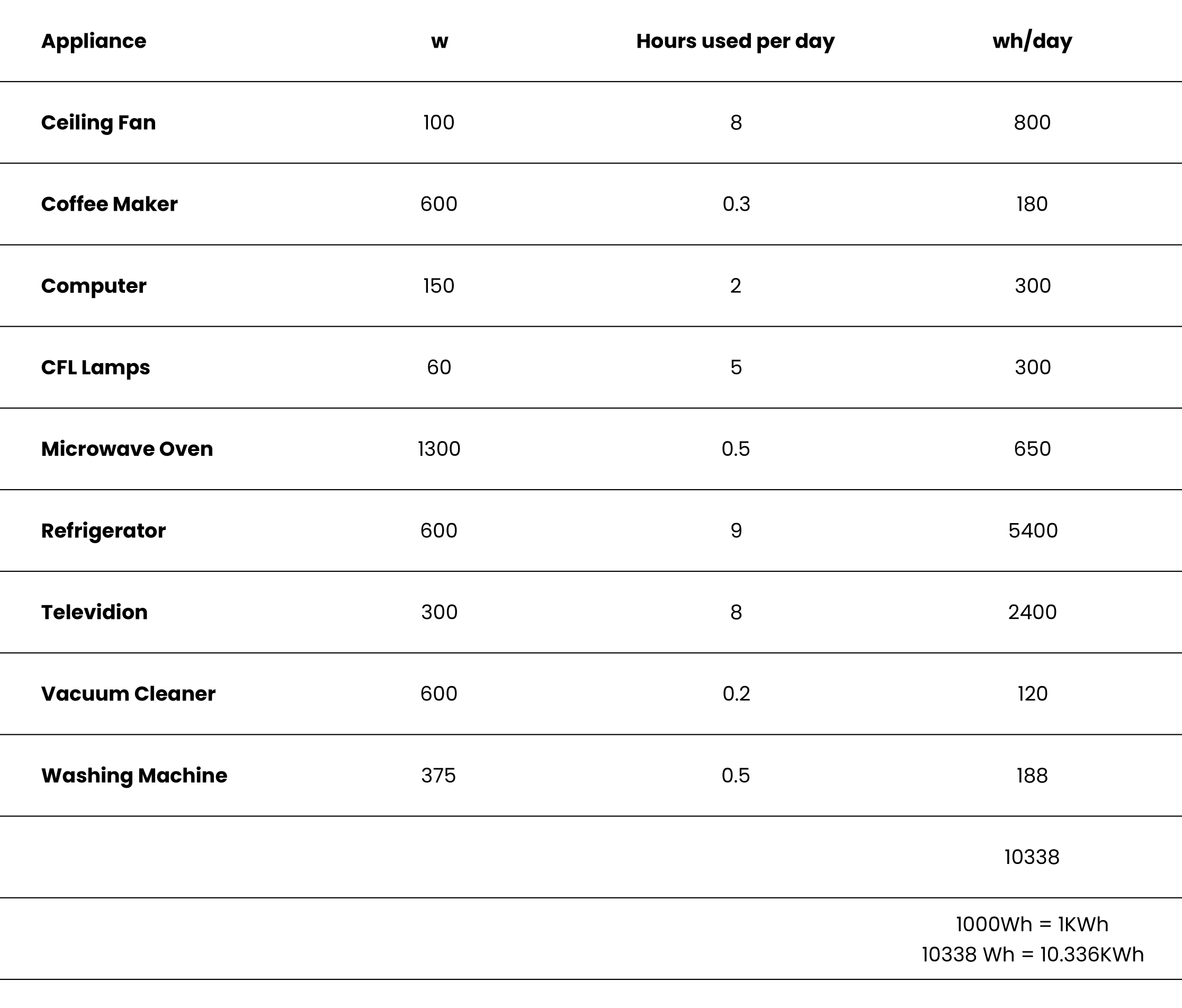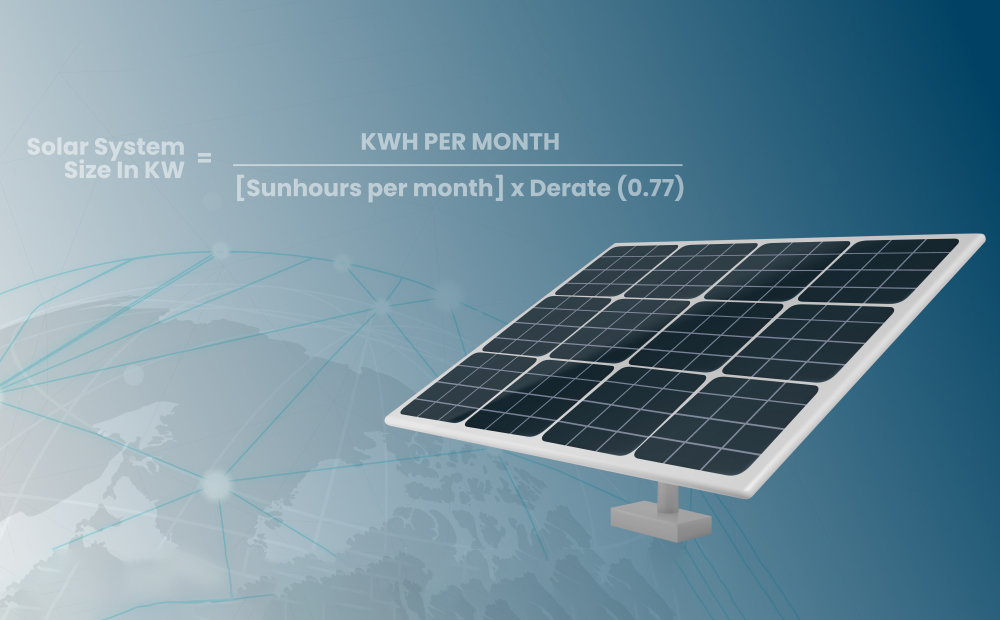Electrical load calculation is the ideal way to determine the electricity consumption in a household. An electrical load calculation assesses the electrical power consumed by the various appliances connected to the electric circuit. Understanding electricity usage in a household can be very important to figure out the impact of the electrical burden on the electricity bills. While migrating to a solar system, picking the right size for the solar plant also depends on load calculations.
Calculating the electrical load of a house involves determining the total power consumption of all the appliances, fixtures, and electronics in your home.
Here’s a step-by-step guide on how to perform an electrical load calculation for a house:
- Identify all electrical appliances and equipment: Make a list of all the electrical devices, including appliances, lighting fixtures, electronics, and any other equipment that consumes electricity in your home. Include items such as air conditioners, refrigerators, televisions, lights, fans, computers, and so on.
- Determine the power rating: Find the power rating or wattage of each device on your list. The wattage is usually mentioned on the appliance itself or in the user manual. If you can’t find the wattage, you can use an electricity usage monitor to measure the power consumption of the device.
- Calculate the energy consumption: Multiply the power rating of each device by the average number of hours it operates in a day. This will give you the energy consumption in watt-hours (Wh) per day for each device. For example, if a device has a power rating of 100 watts and operates for 4 hours a day, the energy consumption would be 100 watts * 4 hours = 400 watt-hours per day

- Convert watt-hours to kilowatt-hours: Since electricity bills are usually measured in kilowatt-hours (kWh), divide the total watt-hours by 1000 to convert them to kilowatt-hours. For example, if the total energy consumption of all devices is 10,000 watt-hours, the converted value would be 10,000 watt-hours / 1000 = 10 kWh.
- Analyze seasonal variations: Take into account any seasonal variations in energy consumption. For example, air conditioners may be used more frequently during hot summer months. Adjust the energy consumption accordingly to get a more accurate estimate.
- Determine the load factor: The load factor is the ratio of the average load to the maximum load in a given period. It represents the average power consumption relative to the peak power demand. In residential applications, the load factor is typically between 0.4 and 0.6. Multiply the total energy consumption by the load factor to account for the varying load.
- Calculate the peak load: To size a solar energy system, you need to determine the peak load, which is the maximum power demand of your house. Identify the appliances or combination of appliances that would consume the most power simultaneously. Add up their power ratings to obtain the peak load value.
- Consider safety margins: It’s advisable to include safety margins when sizing a solar energy system. This ensures that the system can handle unexpected surges in power demand or future additions of electrical devices. Add an additional percentage (e.g., 10-20%) to the peak load value as a safety margin.
By following these steps, you can calculate the electrical load of your house in India. This information will help you determine the right size for a solar energy system to meet your energy needs and optimize its performance. Remember to consult with a professional solar installer or engineer for accurate load calculations and system design.
By calculating the electrical load for your household, you can determine the capacity and size of the solar system needed to meet your energy requirements. It allows you to assess the appropriate sizing of solar panels, inverter capacity to ensure the solar system can meet your energy demands.
About LUBI Electronics
LUBI Electronics is a leading company in India, exhibiting expertise in the automation, solar, and control panel industry.
Our solar offerings include best-in-class solar modules, solar pumps, solar pump controllers and solar inverters.
For more information on our offerings, please reach out to us at lubi@lubielectronics.com.












